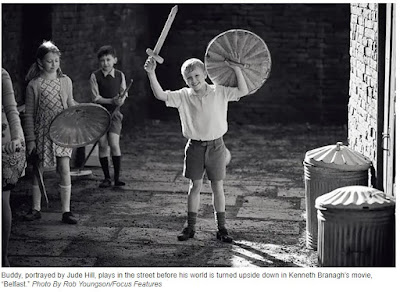Nov. 20, 2022, column from the Amarillo Globe-News:
Reflections on loyalty to hometowns, churches, God
By Mike Haynes
Loyalty was
the topic of a column in this newspaper last Sunday by Dr. Walter Wendler,
president of West Texas A&M University.
It got me to
thinking.
I have plenty
of faults, but after living for quite a few decades, it’s obvious that I’m
loyal, mostly to people and place, as Dr. Wendler expertly described. So is
Kathy, my wife.
People all
over the Panhandle can say the same thing, but here are my examples. I’ll bet
most who read this will find them familiar.
I worked for
25 years at Amarillo College, and after I retiring, I attend luncheons of the
AC retirees’ group. I visit my old department often. AC is a great place and
has great people, which still motivates me.
Kathy worked
more than 30 years at the first Amarillo cancer treatment center. She left only
to join the team of an oncologist for whom she had worked for several years and
who was helping start a new center.
Kathy and I met at Paramount Terrace Christian Church. We got married there soon after and kept attending PTCC, switching only from a singles class to a couples class. The church moved and became Hillside Christian Church; we moved with it and still are there after 31 years
I grew up at
First Methodist Church in McLean, 70 miles east of Amarillo. After moving away
for college and various jobs, I still have a strong fondness for that church,
and Kathy and I give part of our contributions to it. My cousin being the
pastor for most of the past three decades might have something to do with it,
but my loyalty is deeper than that. I still have a little wooden children’s
chair that I’m sure he and I sat on during Sunday school when we were
preschoolers. It’s where I started learning about God.
Lots of
people have lasting loyalty to their hometowns, but I doubt that theirs surpasses
mine. I love living in Amarillo and love friends and family here. But it isn’t
my hometown. My hometown is McLean, at about 725 residents, half the size it
was when I graduated from school there. And most of my family still lives in or
outside of McLean, attending that same Methodist Church.
Family is an
obvious one, and I won’t spend much space going into details today. But the
fact that Kathy and I will be traveling down I-40 for Thanksgiving at the
ranch, then rushing back to Amarillo for “Thankmas” – our combination of
Thanksgiving and Christmas – with my mother-in-law and Kathy’s brother and family
from Oklahoma is testament to the priority both of us place on our kinfolks.
Also in my
hometown is my No. 1 school. I’m the worst athlete in my family, but I’m still
proud of having been on McLean football, basketball and track teams. I love
that our football coach still returns from the Dallas area to our reunions. To
paraphrase the Amarillo High saying, “Once a Tiger, always a Tiger.” But it
isn’t just sports. My classmates, the excellent teachers we had and the old
high school building all make it my school.
Kathy may not
have quite the level of loyalty to AHS that I have to MHS, but she does to her
best friends from school and her church youth group. She kept in touch with one
who moved to Kansas and then to Florida until that close friend passed away. Several
women from her teenage years reconnected some time back and now get together
often. One will be staying a weekend at our house in a couple of weeks.
Then there’s
the Texas Panhandle as a whole. I love that when a sports team from the region
makes it to state, fans from Higgins to Happy and everywhere in between root
for “our” representatives – even if our town lost to their town that season.
And the state of Texas. The Alamo, the
ranching heritage, the fact that we were a nation and much more. Yes, I like to
brag on Texas. And the United States, its history and its flag.
If you look
at the T-shirts in my closet, you’ll know I have sports loyalties. Radio
announcer Jack Dale and Southwest Conference football star Donny Anderson from
Stinnett made me a Texas Tech fan long before I attended school there. Later,
working at Tech for seven years cemented the fact that it’s a great place with
great people.
I often say
that my second favorite school is the University of Oklahoma. Family loyalty to
OU started with relatives in leadership there and my grandmother and uncle
going to school there. Ever since seeing Don Meredith and Bob Hays lead the
Cowboys in the 1960s, I’ve stuck with Dallas as my NFL team. Of course, Tech’s Patrick
Mahomes has compelled me to add Kansas City as another must-watch team.
I have some
loyalty to West Texas A&M, although I look for T-shirts that say “WT”
without the “A&M.” Pistol Pete Pedro, Jerry Logan and Mercury Morris were
some of my football heroes, and it is the Panhandle’s university. My mom and dad
attended WT, which adds fondness for me. But luckily, they quit school to get
married, moved back to McLean and had me.
I’m sure that
blind loyalty can be a bad thing. Sometimes it’s best for people to change jobs
or churches or careers or even political parties. But I think there are plenty
of good reasons for the loyalties that Kathy and I have. And one of them is a
big factor in why we got married.
Besides both
liking the Beatles and salt on our chips, we knew we both had commitments to
Jesus Christ. And that’s the most important loyalty of all.















